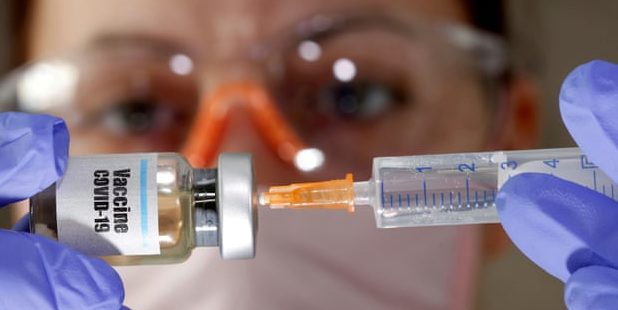The Pfizer/BioNTech vaccine has been approved for use in the UK, and vaccinations will start in the next week or so. It’s fantastic news, obviously. But, you might wonder, is it all that good news for you, given that you are (on the balance of probabilities) not in the first groups who will get vaccinated.
I want to say that, yes, it is. It is fantastic news for one fairly key reason: healthcare workers will be among the first to get vaccinated. That alone should have a pretty dramatic impact on the course of the disease.
As Andrey Zarur, the CEO of the biotech company GreenLight, told me for this piece, the toll on healthcare workers in the first wave was awful. This BMJ paper says that patient-facing healthcare workers in Scotland were three times as likely to be hospitalised as non-patient-facing ones. Healthcare workers are more likely to be exposed, and more likely to get higher viral doses, which raises the risk of severe disease. That meant that they died at about the same rate as the population as a whole, despite being, on average, younger and healthier than the rest of us.
Stopping them getting ill is vital in its own right, of course, but more importantly: they are healthcare workers. If they are all sick or self-isolating, they can’t save lives. It is, I think, pretty widely accepted that the death rates from Covid go up as the ratio of medics to patients goes down. That’s the logic of lockdowns — keep the number of patients as low as possible, so that each one can get plenty of medical attention. But it’s also why it’s important to stop your doctors getting ill, because if you have two doctors for 50 patients on a ward, and one of them gets ill, then you only have one doctor for 50 patients.
Preventing the NHS from getting overwhelmed was the primary justification for the original lockdown, and is a major part of the reasoning behind the most recent one and the continued tier systems. But if we can protect NHS workers with a vaccine, then the NHS will be that much less likely to get overwhelmed, so there will be more room. We can afford to get closer to normality.
The 800,000 doses we get in the first batch won’t get us very far towards that — they will go, I think, mainly to care-home staff and residents. But we will be taking delivery of hundreds of thousands of doses a month and it won’t be all that many months until there’s enough to vaccinate the entire healthcare system — about 1.5 million people, including GPs and other not-exactly-NHS staff. You might not get yours until the middle of the year or later, but I think you will start to notice the benefits, in terms of a less restricted society, well before then.











Join the discussion
Join like minded readers that support our journalism by becoming a paid subscriber
To join the discussion in the comments, become a paid subscriber.
Join like minded readers that support our journalism, read unlimited articles and enjoy other subscriber-only benefits.
Subscribe